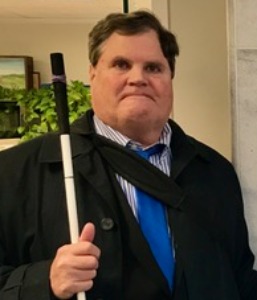Democracy issues will “not go gentle into that good night.” Too many of us are ready to “rage, rage, against the dying of the light” of our democracy, even if it feels feeble at times and meager for the task of illuminating an uncertain path into the future. A path increasingly obscured by trends toward disenfranchisement and authoritarianism.
Preserving our democracy remains a political and legislative priority in the face of curtailed voting rights, increased voter suppression, gerrymandering, dark money in politics, and other significant threats. Federal courts continue to weaken democracy as they roll back established laws.
Congress will be even more divided with control split between the two parties — the Republican Party’s paper-thin majority in the House and the Democratic Party’s nominal majority in the Senate. We can expect further gridlock. However, control of the Senate may allow some items to proceed and provide a better chance for bilateral agreements than in the House of Representatives, where compromise seems remote unless centrist Republicans leverage the opportunity they have.
Congressional leadership — especially in the House, looks transitional and tenuous. (Rep. McCarthy, R-CA was unable to secure the needed votes on the first day of voting). While Republicans may have retained most of its senior leadership, strong ruptures within the party lay a rocky road for holding the majority together, particularly with the presumed Speaker being challenged. Meanwhile, House Democrats will see a complete change of leadership, untested in keeping the caucus together. Many expect Rep. Jamie Raskin (D-MD) to play a critical role.
As Unitarian Universalists engaging Congress, we need to discern whether to focus on strengthening our relationships in the Senate or expanding our efforts to the House. This key strategic choice merits careful consideration.
Over the past three years, the UUSJ Democracy Action Team has focused on members of the Senate, building up good relationships and cultivating access even in disagreement and gains even when at odds. But the 118th Congress brings new opportunities and challenges, as well as political and legislative dynamics.
We know that to influence Congress and the Executive Branch effectively, we need the participation of as many UUs across the country as possible. It’s uncertain how we can influence the Judicial Branch, especially the Supreme Court.
Our efforts to ensure Congress protects and defends our democracy are bound up in UUSJ as an organization building a movement for UU federal engagement.
So I invite you to join us at UUSJ.
Ask yourself and members of your congregation or fellowship — How can we help defend our democracy?
After the midterm elections, it’s time to hold accountable elected legislators and officials. We must hold them to their pledges and promises made during their campaigns. And unspool the pledges that go against our UU values. Advocacy engagement is about making it as hard as possible to say “No.” How can we make it possible, probable, and likely for a “Yes” to building a free and fair world for all?
To be truly effective, UUs must sharpen our denominational impact by acting more strategically and collaboratively. We need to support engagement for our democracy at multiple levels. I invite you to join the Democracy Action Team if that is your passion, but certainly to participate in our legislative actions, attend our issue briefings, and answer our calls to participate in meetings with your federal decision-makers.
Many of the most pernicious State Legislature proposals will likely see corollaries proposed in Congress. Our democracy will need you to side with inclusion. Our democracy works best when we are all engaged and involved. This is still an all-hands-on-deck moment for our democracy.
Please, make good trouble for our democracy and “rage, rage” against the dying of its light.
Kennith Mitchell (he/him/his) is a former UUSJ Trustee who served through July 2021. Ken is an active member of First Unitarian Baltimore, Maryland, and launched their inaugural get-out-the-vote effort in 2022. Ken is also a former professor of public policy and politics. He is passionate and personally invested in advocacy for the blind and visually impaired, in addition to his commitment to advocacy as a Unitarian Universalist.


